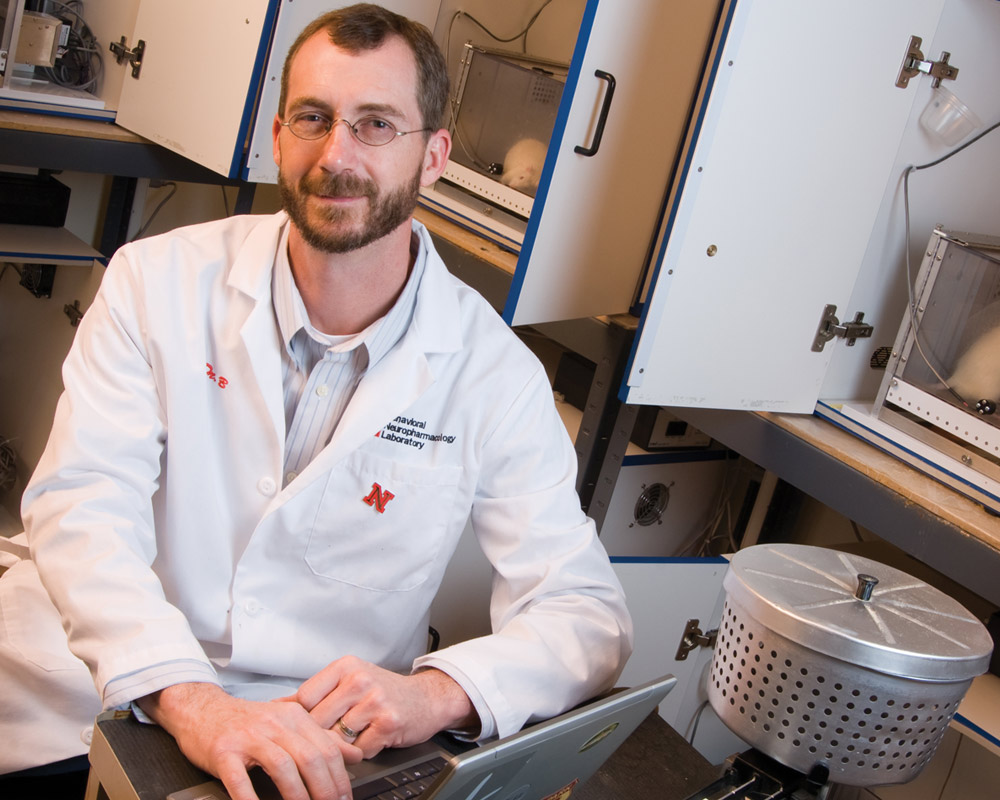Content
Dear Alumni, Students, Colleagues, and Friends,
It is with great enthusiasm that I am pleased to present the Spring 2019 edition of the Department of Psychology Newsletter! The Department continues to grow at a solid pace. Currently, the Department has 33 faculty, the highest ever, and four new faculty will be joining us next year. In addition, we support over 100 graduate students, nearly 1000 undergraduate majors, and over 850 undergraduate minors. We continue to have the highest number of undergraduate majors in the College of Arts and Sciences, and the second highest in the University.
Some of our growth can be attributed to the Department’s interconnection with the Center for Brain, Biology, and Behavior (CB3), a Center that focuses on research devoted to understanding how neural and biochemical processes impact our emotions, thoughts, and behaviors, and to which many new faculty and students are recruited. To celebrate the Department’s interconnection with CB3, a major portion of this newsletter is devoted to introducing this Center, and highlighting the faculty researchers and professional staff who work there. It is noteworthy that a recent award from the National Institutes of Health to establish the Rural Drug Addiction Research Center has collaborative ties with CB3 and other interdisciplinary research centers.
We also attribute our growth to the tremendous value that students experience from their study of psychology in providing a better understanding of themselves and others. By studying psychology, students learn how they and others perceive, remember, comprehend, and express empathy, creativity, and dexterity. A former psychology student-athlete, alumnus Freedom Akinmoladun, advises current students to “soak in all the information that you learn because you will need to apply a lot of the material to your job and in your life.” Psychological knowledge is increasingly critical in a society that is becoming more technologically advanced. As technology replaces current jobs that are characterized by repetitive work, the careers of the future will be focused on those opportunities that depend more heavily on human interactions, such as health care, education, social work, management, and therapy.
During the past year, we have had two faculty join the Department. Tierney Lorenz, a faculty member in the Clinical, and Neuroscience and Behavior Programs, and a resident faculty member in CB3, conducts research that explores the interaction between women's mental, physical, and sexual health by examining immune and endocrine function and by helping women with health conditions to have full, rewarding lives. Jenna Finch, a faculty member in the Developmental Program, focuses her research on children’s early development of self-regulation and motivational skills through interactions with parents, teachers, and peers. Alongside these two new faculty additions, one especially notable faculty member, Brian Bornstein, is retiring this year after a remarkable career. We are grateful for Brian’s many accomplishments to the Department, and especially, to the Law-Psychology Program. Brian plans continuing his scholastic activity in addition to spending time on additional activities that he enjoys.
The excellence of the Department cannot be adequately illustrated without highlighting our annual Nebraska Symposium on Motivation. This year’s symposium, organized by Psychology Professors Anne Schutte and Jeffrey Stevens, and Child, Youth, and Family Studies Professor Julia Torquati, illustrated the beneficial outcomes of exposure to natural environments on our cognition and well-being. Consistent with the history of the Nebraska Symposium, this year’s symposium brought the most renowned national and international scholars to UNL to present their work. In this newsletter, we also highlight additional awards and achievements of faculty, students, and staff beyond what is noted above. Given limited space, it is only possible to provide a glimpse of the valuable work that has been accomplished during this past year by all members of the Department. If you’re interested in learning more (e.g., talks, symposia, research) or on how you can help, please visit our webpage, like our Facebook page, or follow us on Twitter.

Rick Bevins